What is a Reef Safe Sunscreen & Why They Matter

When it comes to natural skincare, organic skincare products are always the best option. Nobody wants noxious chemicals clogging their pores, drying out natural oils, and irritating the skin. At the forefront of the organic skin care product movement, is reef-safe sunscreen. Ethical skin experts tout this range of products as one of the best moves for coral bleaching a single person can enact. But what is reef-safe sunscreen?
What is Reef Safe Sunscreen?

It's an undeniable, and devastating, fact that the earth's coral reefs are suffering. Between rising water temperatures, increasing human damage, and rises in boat traffic, coral bleaching has claimed vast swaths of the worlds coral ecosystems. Coral bleaching occurs when coral expels the algae that live in their tissues in a last-ditch attempt to survive. As the algae leave the reef, it takes all those beautiful colors with it- leaving the white shells of coral behind.
Before you despair, there is some good news! Global environmental movements are working to restore color to our reefs, and one of the simplest things you can do to help is by choosing reef-safe sunscreen.
Reef Safe Sunscreens are great natural products for the skin. Most sunscreens contain UV filtering ingredients, such as oxybenzone and octinoxate, to stop UV rays. However, these chemicals also dissolve in contact with water and are linked to coral bleaching. This phenomenon means in trying to protect your skin; you could be inadvertently damaging reefs!
To put the danger of oxybenzone and octinoxate in perspective, a non-profit research group in Hawaii found that over a year, the Oahu's Hanauma Bay (with its beautiful corals) had over 6000 pounds of sunscreen deposited into the reef per year from snorkellers, tourists, and swimmers. Yuck! This sunscreen is absorbed by the coral polyps and disrupts the chemical balance of this delicate ecosystem.
Hawaii has since banned chemically based sunscreens. This ban is a definitive move for the reefs, but its also great for organic skincare products. Many new companies are rushing in to fill the new market with eco-friendly, reef-safe sunscreens.
Why is using reef-safe sunscreen better for your skin?

At Dot and Key, we care a lot about using natural skincare and organic skincare products .Why? Because nature works. Your skin is a fully functioning, massive organ. It is filled with nutrients, essential bacteria, and has a sensitive pH balance (which you can learn more about here). Using chemicals upsets this balance and affects the harmonies of the nutrients and bacteria on the skin.
Your skin also works as one giant detoxifier; absorbing what you put on your skin into your body, and expelling nastiness through your pores. This incredible bodily function is why pimples sometimes appear and why your diet is such an important factor in skincare.
All these facts add up to one bog truth: putting nastiness on your skin in the chemical form will not reap any rewards — however, natural products for the skin work with the skin bacteria and pH balance instead of against it. Keeping the harmony of your skin, especially in terms of sunscreen, is the best way to guarantee clean, clear, and glowing skin. Plus; organic skincare products are better for the environment.
Creating and putting chemicals into the water or air is a big no at Dot and Key. Instead, we use natural botanicals to create organic skin care products that won’t hurt the planet (or your skin)!
What chemicals do standard sunscreens contain?

When we ask; what is reef-safe sunscreen, we are really asking what is missing. Regular sunscreens contain both oxybenzone and octinoxate, and other nano parabens. Reef safe sunscreens do not. Most reef-safe sunscreens uses mineral-based ingredients like zinc oxide instead of these nasty chemicals. Mineral-based sunblocks are not absorbed by the skin, instead of sitting on top like a natural barrier. These beautiful ingredients contain the antioxidant selenium which acts to build a natural UV barrier, help with collagen production, and stops signs of aging.
To make things more complicated, not all minerals are suitable for the ocean. However, there is one mineral you should try to avoid. Many reef-safe sunscreen brands use titanium dioxide as a chemical alternative, but high concentrations of this mineral aren't suitable for sea life!
How can I find a reef-safe sunscreen?

When you are next shopping for sun skin protection, ask yourself what is reef-safe sunscreen? Check the ingredients for oxybenzone and octinoxate. These are scientifically proven to contribute to coral bleaching so any product which lists these chemicals should get a big cross.
Next, check for mineral bases like titanium dioxide. Mineral base means that the ingredients are non-nano. Non-nano ingredient particles have to be over 100 nanometres in size. Being this size means they are still microscopic but are too big for coral to ingest. Ingesting these particles would poison and damage coral, contributing to its bleaching and demise.
Choosing to use natural skin care products without the nasty chemicals that contribute to coral bleaching is an excellent small change to help save the planet and your skin! If you find yourself stuck, try Dot & Key's Great Suncare Range- which skips on the chemicals to keep your skin fresh, balanced, and glowing.
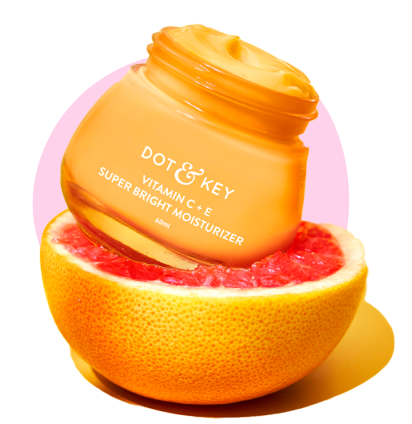
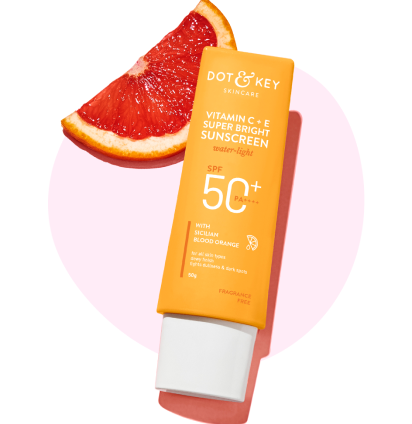
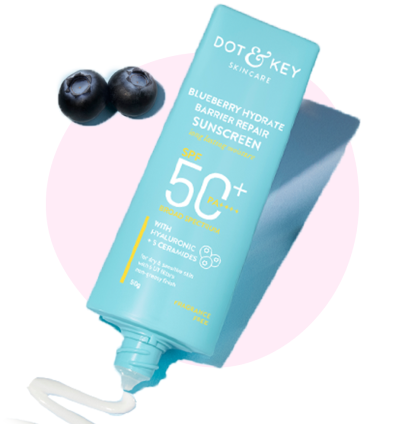
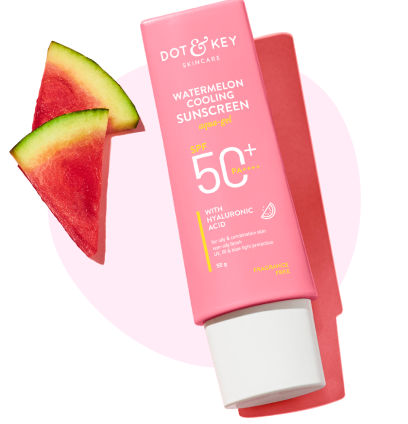
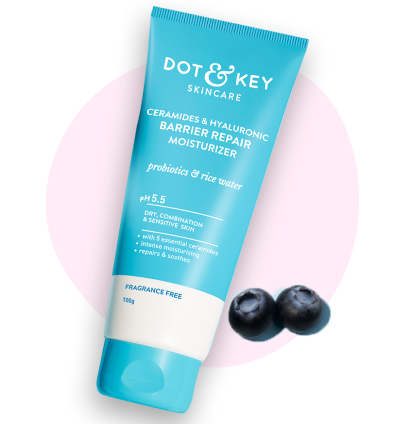
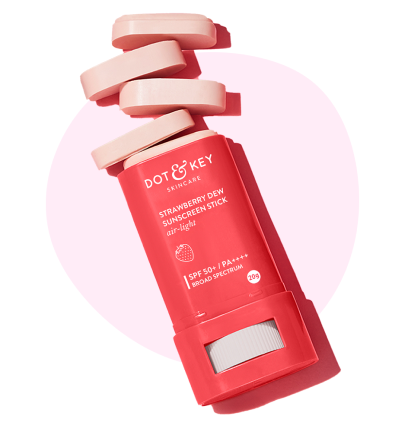
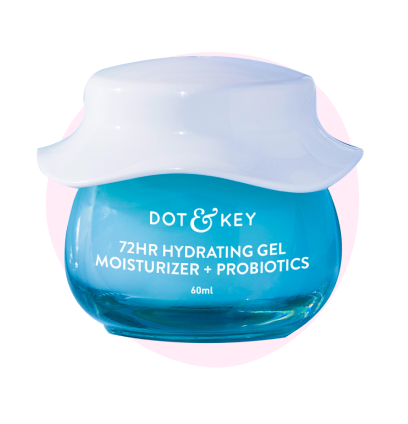

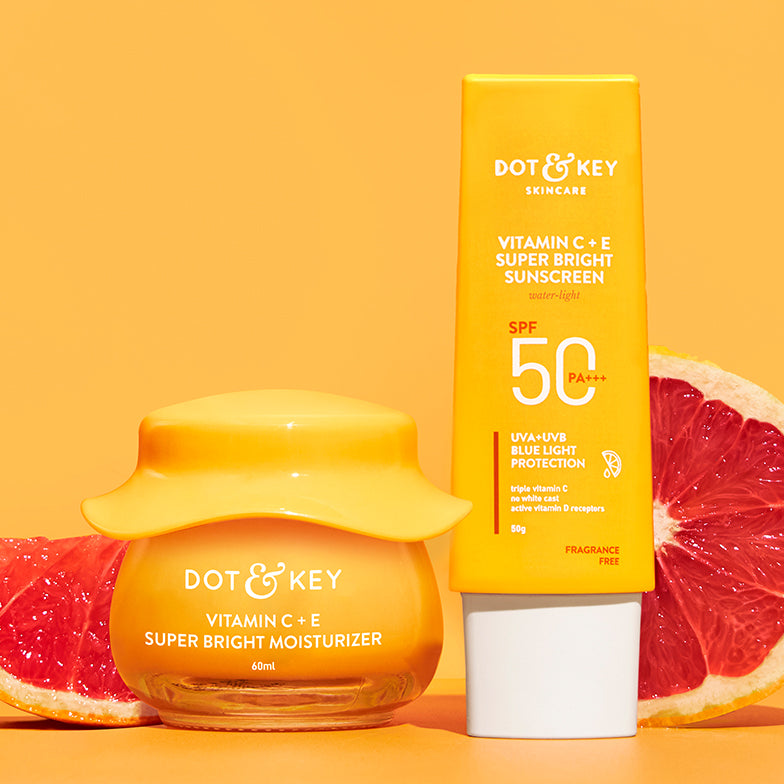

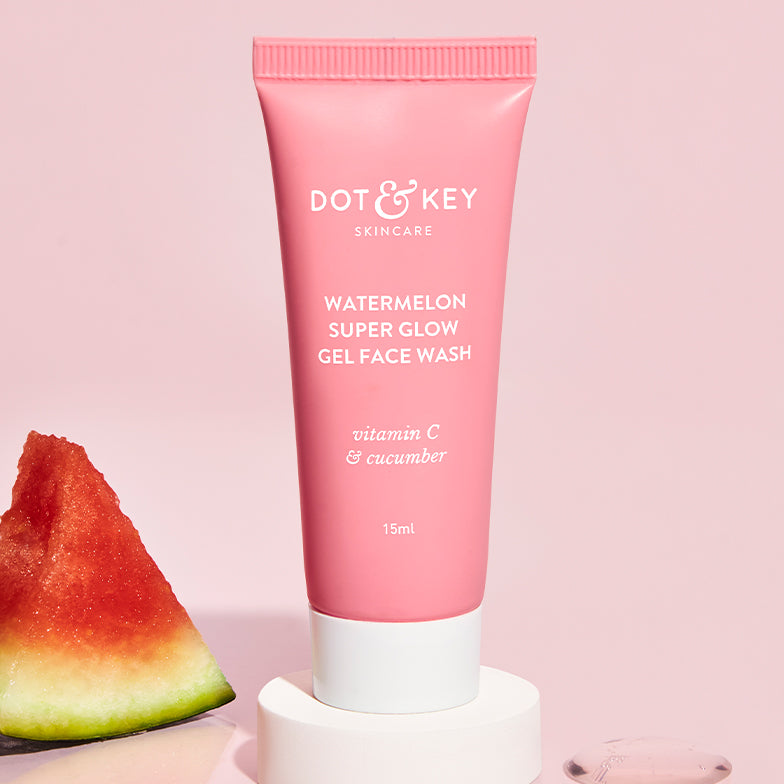
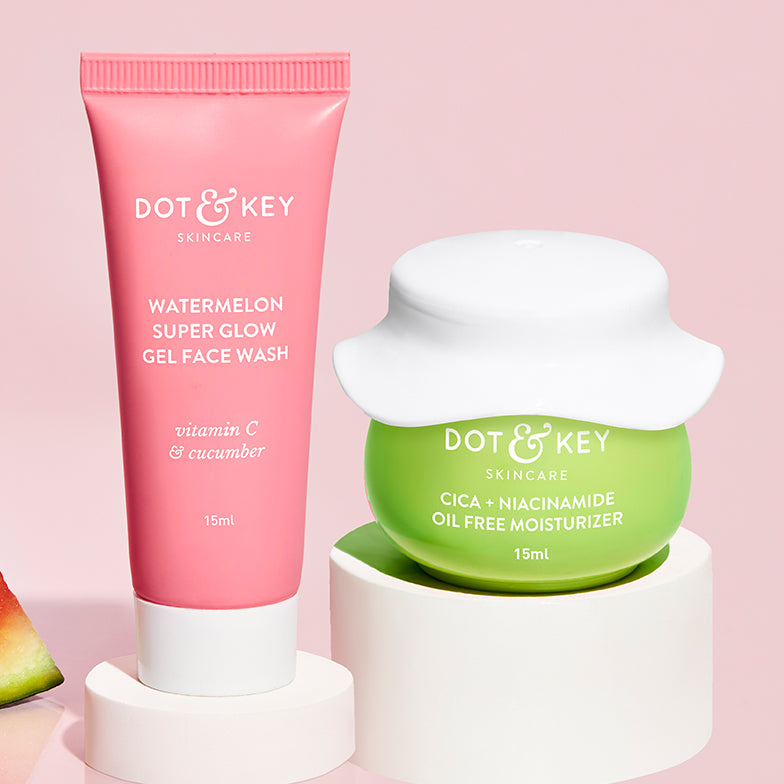
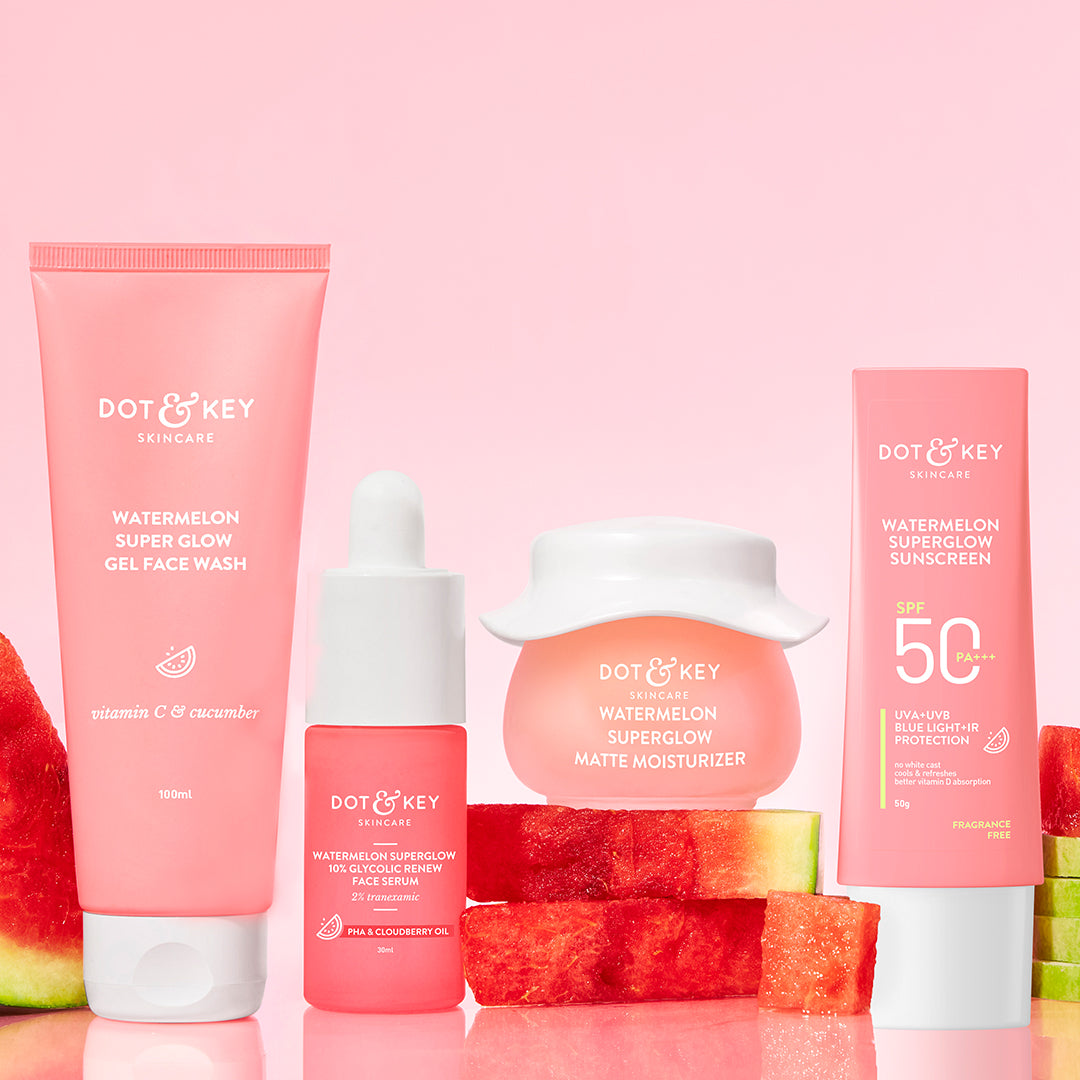
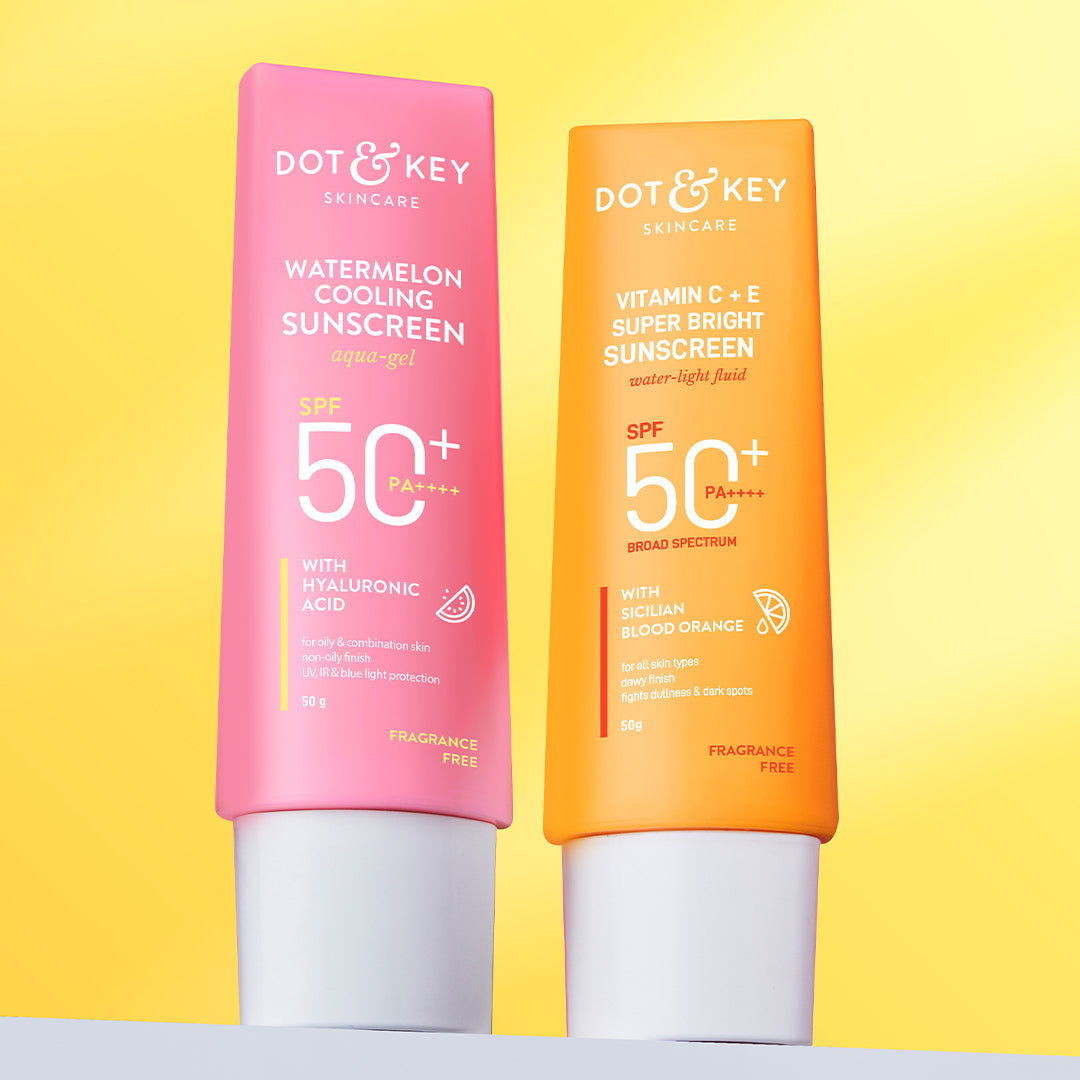



Leave a comment